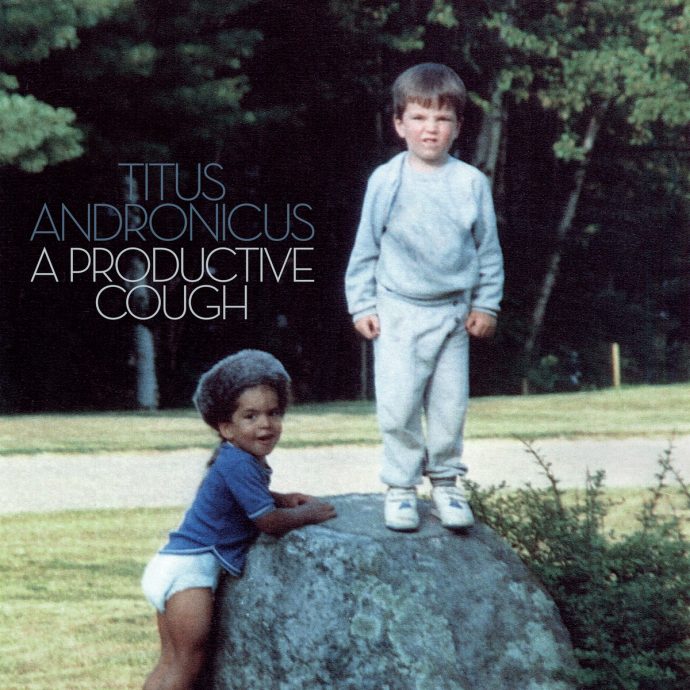When Titus Andronicus announced their latest record within a year of President Trump’s inauguration, it was easy to imagine what one of the truest modern punk bands would create in response: A fast record with hard-to-hear lyrics spat angrily into a dented microphone. The New York-based group had made songs like that in the past, and now seemed like a better time for such a visceral version of punk than ever. So naturally, that’s not what Titus Andronicus did.
That’s not to say A Productive Cough doesn’t address the frustration front-man Patrick Stickles feels with the current American political climate; he does throughout the record. But the music is far more subdued than Titus Andronicus has been for more than one consecutive track in the past while the lyrics find Stickles gravitating between his frustrations with the world and his frustrations with his place in it.
The first track on the record, “Number One (In New York)” has a hard time finding its footing lyrically. The first half of the song puts Donald Trump and his supporters directly in his crosshairs, referring to the former as a “dysfunctional fuck up” and the latter as “deplorable forces”. But as the song continues on in its crescendoing nature, Stickles’ inward and outward frustrations become convoluted. He sings: “I can’t begin to think what I’d tell people back home/So I tell it to the microphone.”
“Above the Bodega” is the most immediately accessible song on the record. The progression has an authentic blues sounds to it without feeling like it’s trying too hard to sound like anyone in particular. Stickles chronicles a peak into the unique relationship between the consumer and the merchant. As he sings “Because you can lie with your expression or you like with the things you say/But you can’t lie with your dollars – your dollars they give you away.”
Stickles temporarily concedes his front-man position to Megg Farrell. Her voice is distant and ominous, less confrontational than Stickles’. The Bob Dylan cover, “(I’m) Like A Rolling Stone” alters the lyrics slightly, but ultimately change the song’s meaning. Where Dylan’s original is confrontational, Titus Andronicus’ cover is vulnerable; where Dylan’s is triumphant, Titus Andronicus’ is defeated. The album tapers off unceremoniously. The final two tracks, “Home Alone” and “Mass Transit Madness”, don’t add much to the record. “Home Alone” is lyrically simplistic, but is the closest thing to a traditional Titus Andronicus ripper the album has. On “Mass Transit Madness”, Stickles bids the listener a bitter farewell in his final lines of the album: “I’m through talking to you—there’s no more left to say/My words are all worthlessly murmured away/And my gaze is returning once more towards the maze.
Rating: 6.7/10

